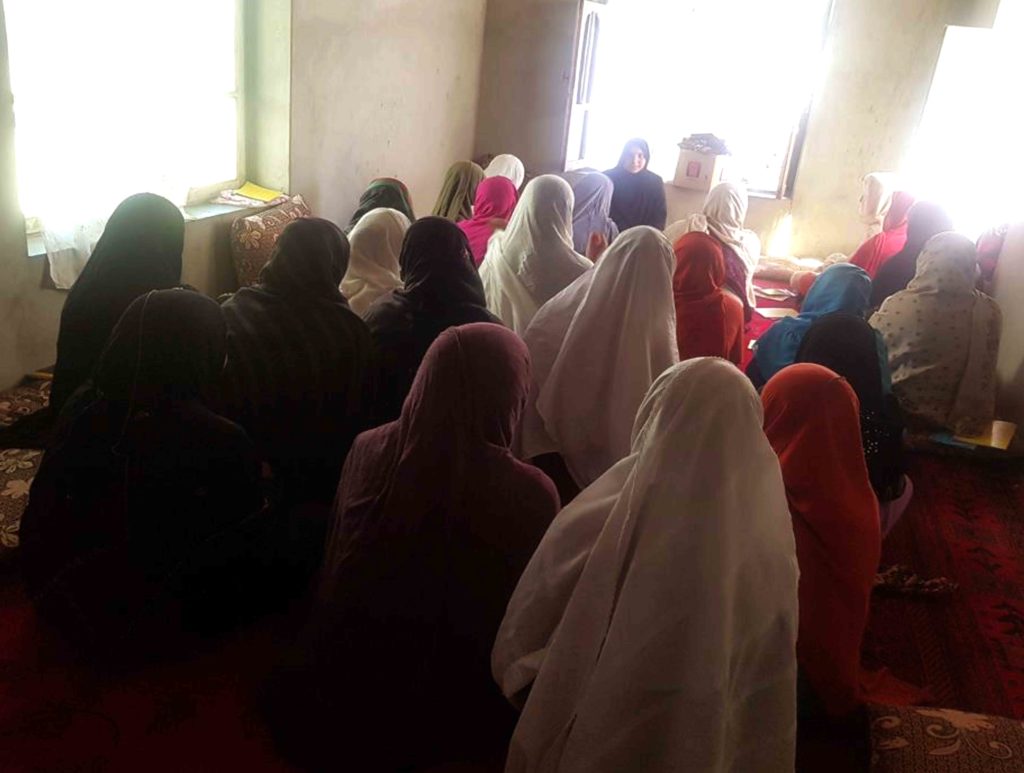Afghanistan has one of the lowest literacy rates in the world, currently estimated at about 31% of the adult population (over 15 years of age). Female literacy levels are on average 17%, with high variation, indicating gender divide, according to UNESCO.
Siwa, 20, is an active young girl from Laghman province who graduated from the Young Leaders Program (YLF). After graduation, she decides to promote female literacy in her small village, Taj Kali, by facilitating socio-cultural dialogues and holding a literacy class for 25 women.
“My motivation for starting literacy classes goes back to our YLF community project in early 2019.” Said Siwa. “Together with three other young leaders, we had designed a community project titled “Education for all” to promote literacy and education in Wardak and Nasrat Qala villages of Laghman province. We sat down with people and discussed the role and challenges of education and we would encourage them to send their family members to schools and literacy courses.”
“This community project inspired me to start promoting literacy in my own village too. In mid-2019, I facilitated regular dialogues in my village and those nearby. I invited local people to discuss how literacy for adult women and young girls can bring profound changes to their lives and their families. In these dialogues, I also shared my idea to launch a literacy class in the villages for women. Fortunately, it was agreed and I volunteered to teach the class. Now there are 25 women in my class.”
Siwa has never stopped her dialogues with the villagers even after the launch of class. “The launch of this class would have been impossible without engaging in dialogue with people,” said Siwa. “From time to time, I invite the people including the family members of these women and discuss how they have improved and what changes have appeared in the families after the launch of class. This inspires more people to send their daughters and wives to the class. Most of the participants can now read different books, make the shopping list, write letters and do the calculations.”
Siwa is motivated to work with more women in 2020. “This year hopefully I will teach the second batch of the interested women.”














